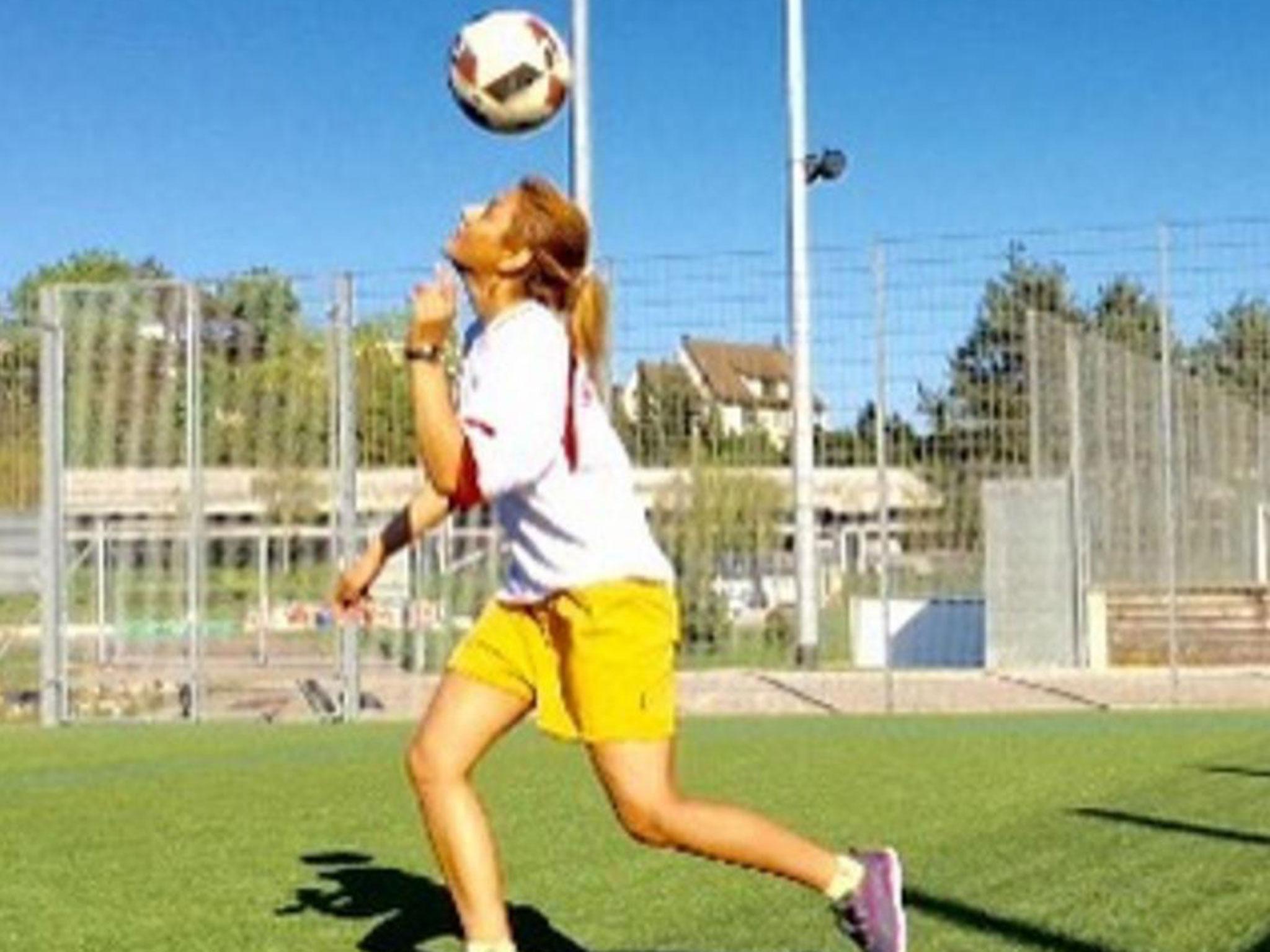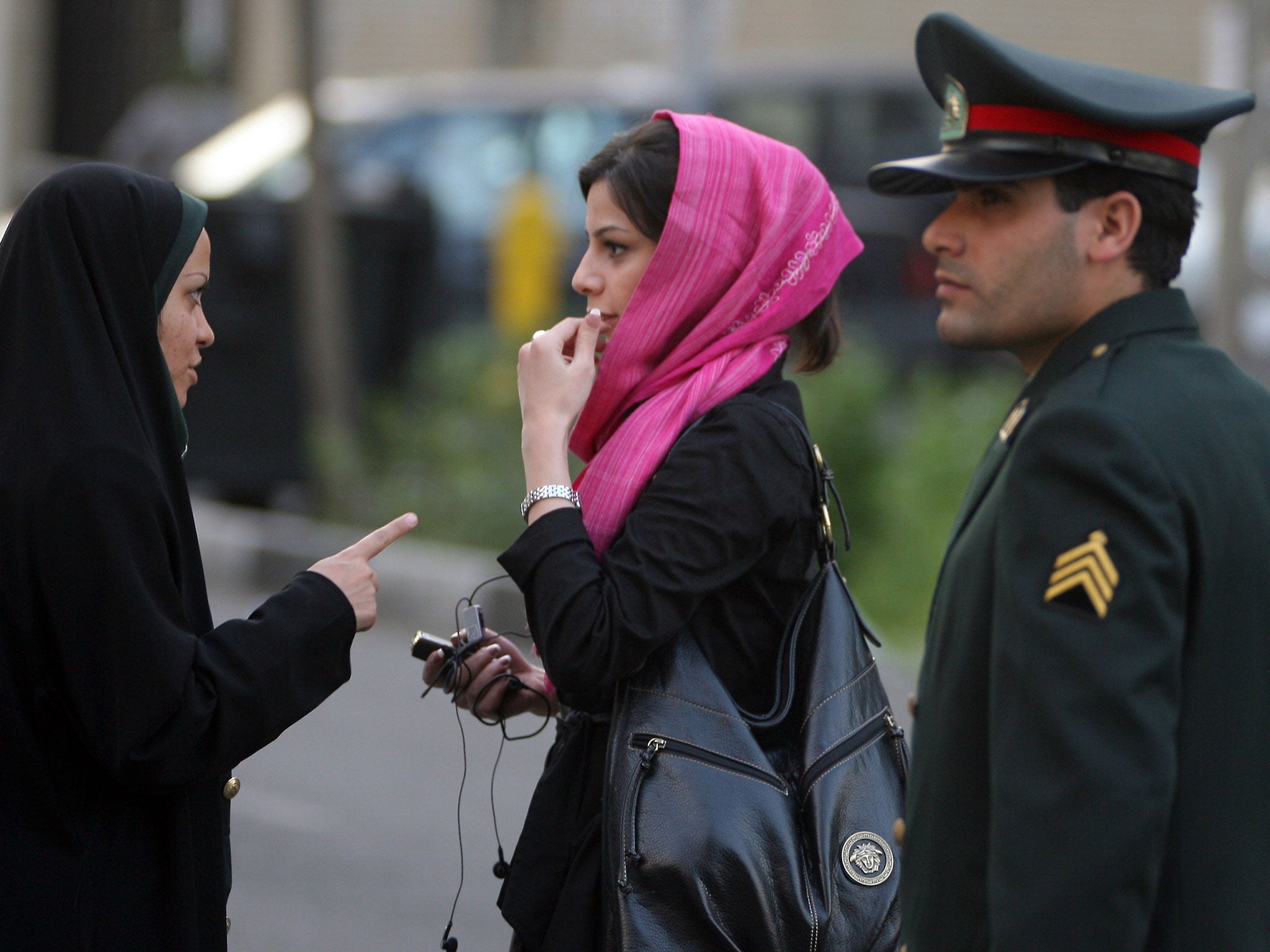Former member of Iranian women's football team 'banned from sport' after being photographed without veil
Shiva Amini said officials condemned her for playing with men and wearing shorts

Your support helps us to tell the story
From reproductive rights to climate change to Big Tech, The Independent is on the ground when the story is developing. Whether it's investigating the financials of Elon Musk's pro-Trump PAC or producing our latest documentary, 'The A Word', which shines a light on the American women fighting for reproductive rights, we know how important it is to parse out the facts from the messaging.
At such a critical moment in US history, we need reporters on the ground. Your donation allows us to keep sending journalists to speak to both sides of the story.
The Independent is trusted by Americans across the entire political spectrum. And unlike many other quality news outlets, we choose not to lock Americans out of our reporting and analysis with paywalls. We believe quality journalism should be available to everyone, paid for by those who can afford it.
Your support makes all the difference.A former member of Iran's women's football team claims she has been banned from the sport after being photographed with her hair uncovered abroad.
Shiva Amini shared photos on Instagram showing her playing friendly matches in Switzerland and Italy, competing in shorts and without Iran’s compulsory hijab veil.
“I never thought that I would one day be prevented from playing for my country because I appeared unveiled and was wearing a pair of shorts in a photo taken on a personal trip outside of Iran,” she told the My Stealthy Freedom women’s rights campaign.
“This was not even an official game. It seems that for the sports community in Iran, the veil carries greater importance than sport.
“I don’t know what our country’s officials are trying to prove by suspending people like me whose primary pre-occupation is give a better reputation to Iran.”
Ms Amini played for the national women’s futsal team, who play a variant of five-a-side football on hard courts, for four years but has moved into regional teams and coaching since 2009.
She said officials had barred her from any further activity governed by the Iraniain football federation, ruining 13 years of hard work towards her dream of winning an international title.
“Since when have we been required to wear the veil outside of the country?” she asked.
Ms Amini’s Instagram, with more than 6,300 followers, includes photos of her playing football abroad in shorts with uncovered hair, as well as playing with men – all affronts to conservative officials in Iran.
Women’s dress is subject to strict rules in the country, which employs thousands of “morality” police to ensure they are covered with the hijab and loose clothing, punishing any infractions with arrests and fines.

Masih Alinejad, an Iranian journalist who runs the My Stealthy Freedom campaign from New York, described the disqualification as a “foul” that countered claims of increasing equality.
“It is shameful that the government is suffocating the hope of Iranian women day by day,” she told The Independent.
“When you talk to the officials, they often downplay the importance of the compulsory veil by saying ‘This is an unimportant issue. We have bigger issues in Iran’.
“Yet, the case of Shiva and those of many other Iranian women who have seen their dreams shattered because of the compulsory veil depict a different picture.”
In 2014 alone, government statistics showed that 3.6 million were arrested, warned or fined for their attire, Ms Alinejad said.
Ms Amini said she had been heartened by the public response to her ordeal, saying thousands of people had sent messages of support and vowing not to stay silent on the issue.
The Football Federation Islamic Republic of Iran denied the claims in a statement, which said Ms Amini stopped playing for the national team for reasons unrelated to dress codes and behaviour.
But the player posted photos of herself wearing the Iranian football strip and recounted a futsal official telling her: “When you are a member of an official team, you do not have the right to play without the veil even in non-official games abroad.
“We are living in Islamic country. Why did you have to play with boys?”
A spokesperson for the Iranian embassy in London did not immediately respond to The Independent’s request for clarification.
It is not the first time Iran’s strict rules for female players has generated controversy.
Fifa banned the women’s team from the Olympics in 2011 because they were being forced to wear the hijab, which violates its safety rules.
Iranian state television was ridiculed for digitally editing extra clothing on to Charlize Theron during its Oscars coverage, and in February an 18-year-old chess grandmaster was kicked off the Iranian national team after competing in an international tournament without a hijab.
Last month, Iran’s Supreme Leader claimed gender equality is a “Zionist plot” aiming to corrupt the role of women in society.
Ayatollah Ali Khamenei told a meeting of religious speakers: “Making women a commodity and an object of gratification in the Western world is most likely among Zionist plots aiming to destroy the society.”
Iranian women are heavily restricted in their personal and public lives, including with state-enforced dress codes, curbs on higher education courses, jobs and sporting activities open to them, and freedom of movement under controls requiring a husband’s signature to leave the country.
Many have been rallying round movements like My Stealthy Freedom, which combats the compulsory hijab, but women found to have broken “morality” laws have been arrested and forced into public apologies.
Among them are women detained for wearing ripped jeans and breaking a fatwa issued by Khamenei to ban women cycling in public – claiming it “attracts the attention of men and…contravenes women’s chastity” - as well as others arrested for posting “vulgar” photos without headscarves on Instagram.
Join our commenting forum
Join thought-provoking conversations, follow other Independent readers and see their replies
Comments